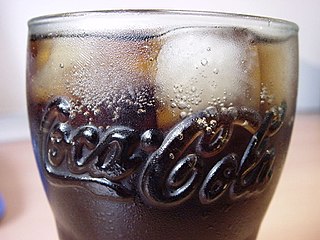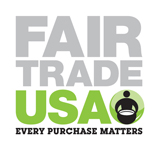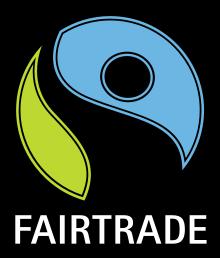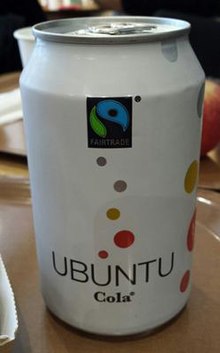
Cola is a carbonated soft drink flavored with vanilla, cinnamon, citrus oils, and other flavorings. Cola became popular worldwide after the American pharmacist John Stith Pemberton invented Coca-Cola, a trademarked brand, in 1886, which was imitated by other manufacturers. Most colas originally contained caffeine from the kola nut, leading to the drink's name, though other sources of caffeine are generally used in modern formulations. The Pemberton cola drink also contained a coca plant extract. His non-alcoholic recipe was inspired by the coca wine of pharmacist Angelo Mariani, created in 1863.

Irn-Bru is a Scottish carbonated soft drink, often described as "Scotland's other national drink". Introduced in 1901, the drink is produced in Westfield, Cumbernauld, North Lanarkshire, by A.G. Barr of Glasgow. As well as being sold throughout the United Kingdom, Irn-Bru is available throughout the world and can usually be bought where there is a significant community of people from Scotland. The brand also has its own tartan. It has been the top-selling soft drink in Scotland for over a century, competing directly with global brands such as Coca-Cola.

Fair trade is a term for an arrangement designed to help producers in developing countries achieve sustainable and equitable trade relationships. The fair trade movement combines the payment of higher prices to exporters with improved social and environmental standards. The movement focuses in particular on commodities, or products that are typically exported from developing countries to developed countries but is also used in domestic markets, most notably for handicrafts, coffee, cocoa, wine, sugar, fruit, flowers and gold.

Jolt Cola was a carbonated soft drink produced by The Jolt Company, Inc.. The cola drink was created in 1985 by C. J. Rapp as a highly caffeinated beverage. It was targeted towards students and young professionals, stressing its use as a stimulant in a similar manner as energy drinks. Its slogan reads "All the sugar and twice the caffeine!"

The Coca-Cola Company's formula for Coca-Cola syrup, which bottlers combine with carbonated water to create the company's flagship cola soft drink, is a closely guarded trade secret. Company founder Asa Candler initiated the veil of secrecy that surrounds the formula in 1891 as a publicity, marketing, and intellectual property protection strategy. While several recipes, each purporting to be the authentic formula, have been published, the company maintains that the actual formula remains (allegedly) a secret, known only to a very few select employees. The claim that the recipe is only known to two (2) people and that they cannot fly on the same plane due to the chance they may die, and the recipe will become unknown, is a myth and has been fact-checked multiple times.

Smirnoff is a brand of vodka owned and produced by the British company Diageo. The Smirnoff brand began with a vodka distillery founded in Moscow by Pyotr Arsenievich Smirnov (1831–1898), but its modern incarnation traces back to the 1930s, by American liquor distributor Heublein. Distributed in 130 countries, it is manufactured in different countries depending on market, but is not currently produced in Russia or, indeed, anywhere in Eastern Europe.
Odwalla Inc. is an American health food company based in Dinuba, California. Founded in Santa Cruz, California in 1980 and formerly headquartered in Half Moon Bay, California from 1995 to 2020, the company's product lines include fruit juices, smoothies, soy milk, bottled water, organic beverages, and several types of energy bars known as "food bars".

The Fairtrade Foundation is a charity based in the United Kingdom that aims to help disadvantaged producers in developing countries by tackling injustice in conventional trade, in particular by promoting and licensing the Fairtrade Mark, a guarantee that products retailed in the UK have been produced in accordance with internationally agreed Fairtrade standards. The foundation is the British member of FLO International, which unites FLO-CERT, 25 National Fairtrade Organisations and 3 Producer Networks across Europe, Asia, Latin America, North America, Africa, Australia and New Zealand.
Traidcraft was a UK-based Fairtrade organisation, established in 1979. Its trading arm, Traidcraft plc, which sold fairly traded products, went into administration in January 2023.

Aquarius (アクエリアス) is an American-owned Japanese brand of sports drink manufactured by The Coca-Cola Company. It originated in 1978, and was first introduced in 1983 in Japan as a grapefruit-flavored sports drink, as a response to a competitor's brand of sports drink called Pocari Sweat. It was introduced in Spain and Portugal in 1991, and was the official drink of the 1992 Summer Olympics in Barcelona, 1994 Winter Olympics in Norway, 2008 Summer Olympics in Beijing, 2016 Summer Olympics in Rio de Janeiro, and the 2020 Summer Olympics. The brand has been heavily marketed by giving away free samples in sporting events.

The 'International Fairtrade Certification Mark is an independent certification mark used in over 69 countries. It appears on products as an independent guarantee that a product has been produced according to Fairtrade political standards.

Fair Trade USA, formerly "TransFair USA", is a 501(c)(3) non-profit organization that sets standards, certifies, and labels products that promote sustainable livelihoods for farmers and workers and protect the environment.

Fairtrade Canada, formerly TransFair Canada, is a national non-profit certification and public education organization promoting Fairtrade certified products in Canada to improve the livelihood of developing world farmers and workers. It is the Canadian member of FLO International, which unites 24 fair trade producer and certification initiatives across Europe, Asia, Latin America, North America, Africa, Australia and New Zealand.
The fair trade movement has undergone several important changes like the operation for ten thousand villages to open their businesses since early days following World War II. Fair trade, first seen as a form of charity advocated by religious organizations, has radically changed in structure, philosophy and approach. The past fifty years have witnessed massive changes in the diversity of fair trade proponents, the products traded and their distribution networks.

Pepsi Raw was a cola soft drink created by PepsiCo and Britvic exclusively introduced in the United Kingdom in 2008 as a "Sparkling Cola Drink with Natural Plant Extracts". Pepsi Raw contained naturally sourced ingredients that were free from artificial flavouring, colourings, preservatives and sweeteners. Advertising for Pepsi Raw presented the product as a natural alternative to other colas. Pepsi Raw was also marketed in Norway and Australia.
Equal Exchange Trading is a UK-based alternative trading organisation. Equal Exchange is a worker's cooperative distributing food and beverage products in the independent natural food sector. The organization's origins stretch back to 1979 "when three voluntary workers returned to Edinburgh after working on aid projects in various parts of Africa."

Fair trade coffee is coffee that is certified as having been produced to fair trade standards by fair trade organizations, which create trading partnerships that are based on dialogue, transparency and respect, with the goal of achieving greater equity in international trade. These partnerships contribute to sustainable development by offering better trading conditions to coffee bean farmers. Fair trade organizations support producers and sustainable environmental farming practices and prohibit child labor or forced labor.

A fair trade certification is a product certification within the market-based movement of fair trade. The most widely used fair trade certification is FLO International's, the International Fairtrade Certification Mark, used in Europe, Africa, Asia, Australia and New Zealand. Fair Trade Certified Mark is the North American equivalent of the International Fairtrade Certification Mark. As of January 2011, there were more than 1,000 companies certified by FLO International's certification and a further 1,000 or so certified by other ethical and fairtrade certification schemes around the world.

Coca-Cola Life was a reduced-calorie version of Coca-Cola introduced in 2013, using a combination of stevia and sugar as sweeteners. It was first released in Argentina and Chile after five years of research together in these countries. The formulation varied by market location, and in some areas the original formulation had been phased out in favor of a zero-calorie version sweetened with stevia only. The drink was discontinued in 2020 as part of the Coca-Cola Company discontinuing underperforming brands.














